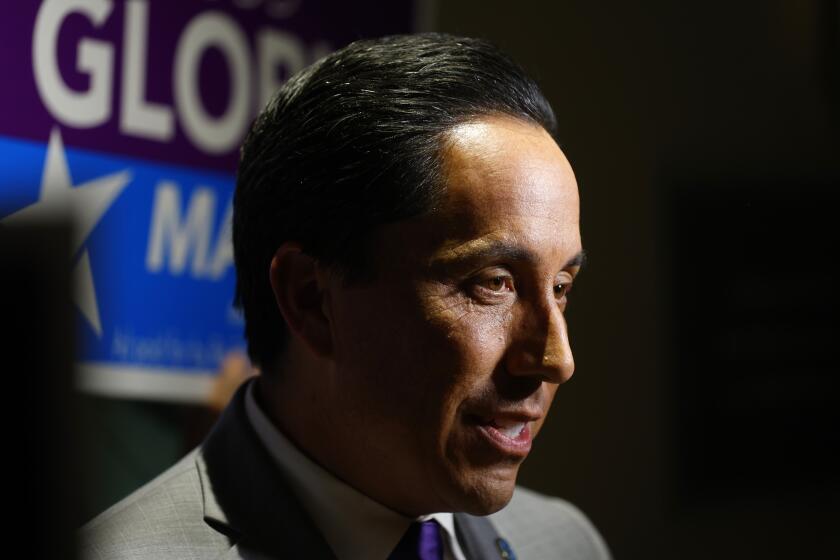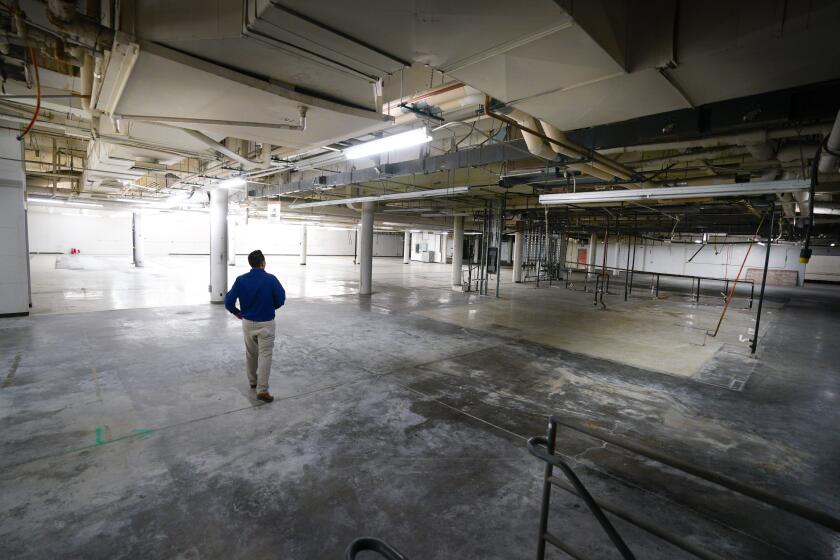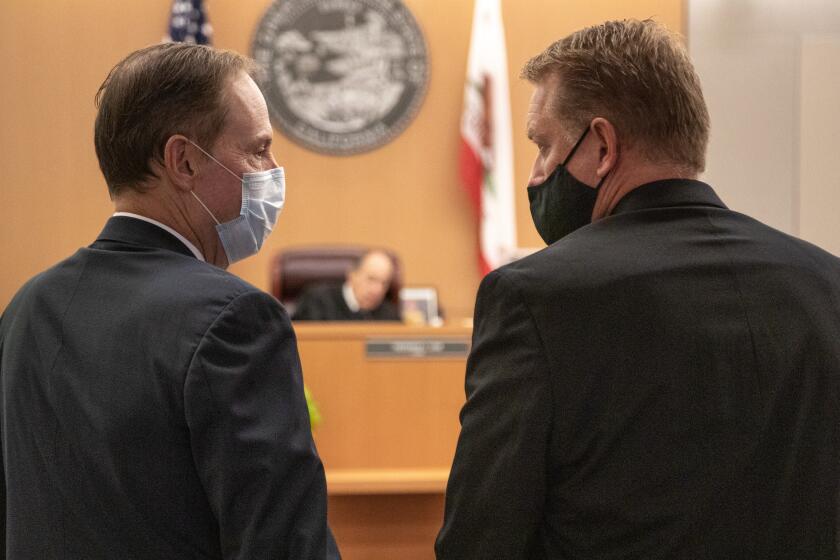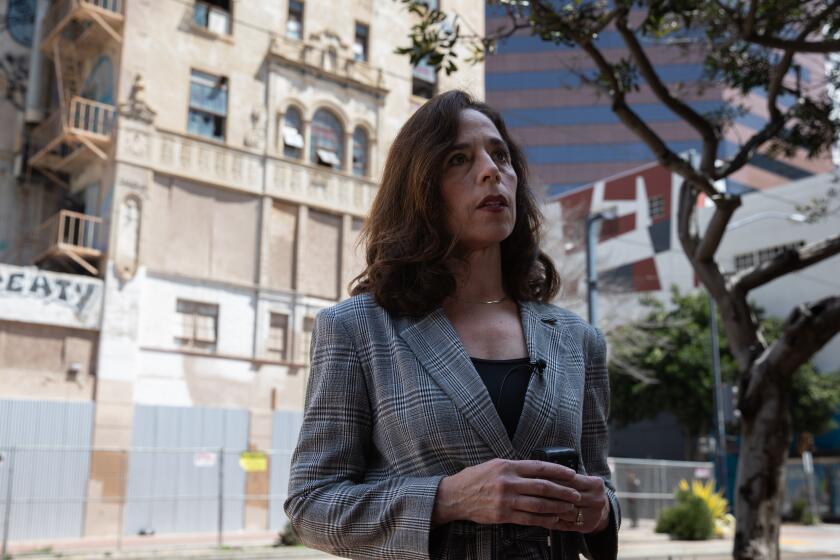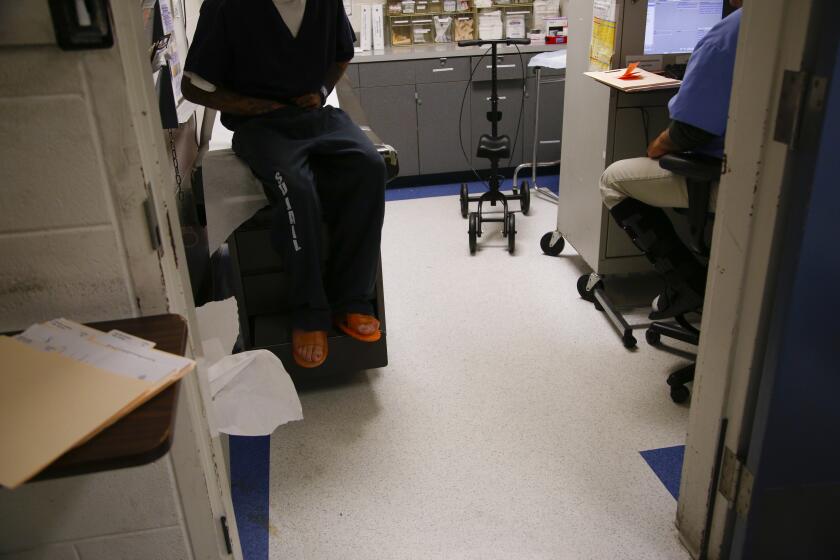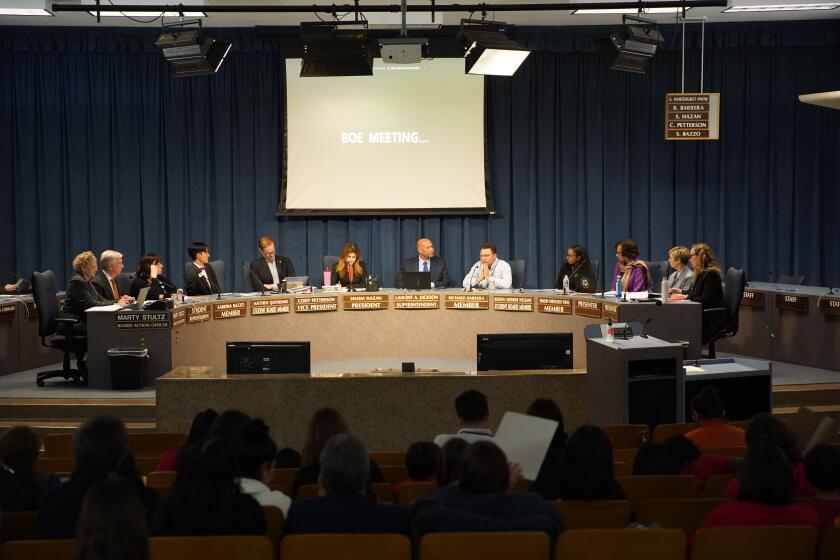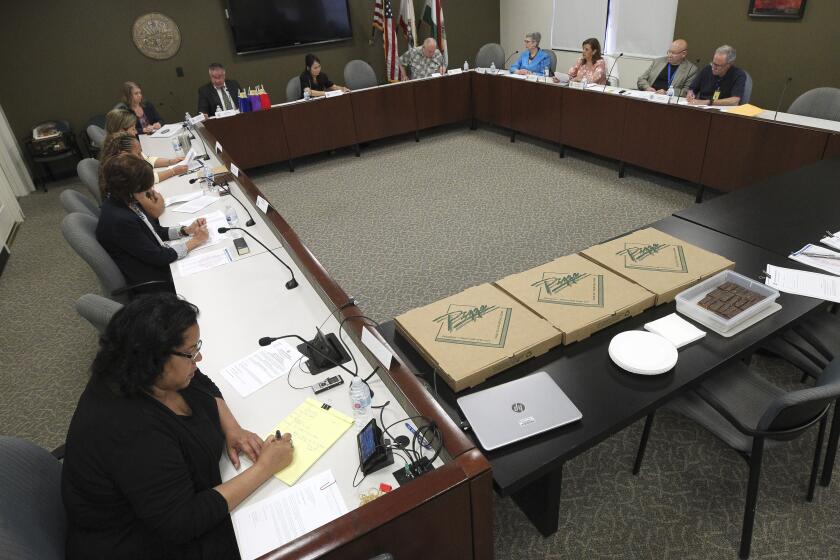2 new warrants served in CPUC case
Agents seek documents at headquarters for Edison, utilities commission
The criminal investigation of the California Public Utilities Commission appears to be intensifying, with state agents serving a fresh round of search warrants at the regulators’ headquarters in San Francisco and at Southern California Edison offices outside Los Angeles.
The Attorney General’s Office wants details about a settlement agreement that assigned Southern California ratepayers to cover $3.3 billion in shutdown costs for the San Onofre nuclear plant, which closed on an emergency basis in January 2012 after Edison installed faulty replacement steam generators that caused a radiation leak.
According to documents obtained by The San Diego Union-Tribune, investigators executed a warrant at the commission offices on June 5, seeking “any and all records” pertaining to the San Onofre settlement between the day of the leak — Jan. 31, 2012 — and January 2015.
They also requested records of any communications about the commission’s internal investigation of the San Onofre closure and any correspondence regulators had with two consumer groups that negotiated the settlement with Edison.
“With respect to the categories of documents specified in the search warrant, CPUC will search for, review and produce responsive documents,” the warrant orders.
It was not the first search warrant served on the commission, a quasi-judicial agency charged with ensuring “just and reasonable” utility rates for tens of millions of Californians.
Agents seized computers, files and other materials from its San Francisco office in November, focused at that time on the commission’s relationships with Pacific Gas & Electric after a deadly pipeline blast in 2010. The latest warrants show a more recent focus on Edison, majority owner of the San Onofre plant north of Oceanside.
The San Onofre search warrant lists almost two dozen people whose emails and other communications investigators want to review, including the highest levels of leadership at both the commission and the utility.
A 20-page affidavit that lays out the agent’s case for seeking the warrant was sealed by Los Angeles Superior Court. The documents that are publicly available discuss delays in obtaining records needed by investigators.
“CPUC legal counsel advises that due to limited resources, and the concurrent demands of federal subpoenas and public records act requests, the evidence is not currently available,” the records state. “Despite requests, CPUC has still not provided a specific time frame as to when documents will be provided as ordered by the court.”
The utilities commission said it has received and complied with numerous subpoenas, search warrants and public records requests calling for millions of documents covering many different subject areas and time spans.
“To date, the CPUC has produced to prosecutors many documents in response to their requests,” spokeswoman Terrie Prosper said. “We continue to cooperate with the investigations by locating, processing and producing responsive documents as quickly and efficiently as our resources allow.”
The commission is spending up to $5 million of ratepayer money on criminal-defense attorneys earning up to $882 per hour each.
In addition to details about the San Onofre settlement and the negotiation process, agents requested information related to a meeting in Poland two years ago between then-commission President Michael Peevey and Edison executive Stephen Pickett.
The meeting was undisclosed until The San Diego Union-Tribune reported in January that notes from the meeting at the luxury Hotel Bristol Warsaw had been seized at Peevey’s home by criminal investigators. Edison then filed a two-years-late disclosure notice saying that the men had discussed a framework for settling the San Onofre shutdown costs.
The agreement approved by the commission in November assigned 70 percent of the $4.7 billion in costs to ratepayers, as opposed to shareholders in Edison and minority owner San Diego Gas & Electric. Many of the deal points followed the framework set in Warsaw, although certain details changed during negotiations.
One idea in the Poland meeting notes that became part of the plan was that tens of millions of dollars in utility money be set aside for greenhouse gas research at the University of California.
In the June warrant, investigators specifically requested any correspondence that mentions UCLA, where Peevey accepted a seat on a prestigious advisory board after repeatedly pressuring Edison to approve the $25 million donation.
The Union-Tribune reported in April that UCLA was drafting proposals for how to spend the grant money months before other institutions knew what was coming.
The warrant covers 20 separate current and former officials at the commission and Edison besides Peevey and Pickett. They include Commissioner Michel Florio and his chief of staff, Sepideh Khosrowjah; former Executive Director Paul Clanon; and Melanie Darling, the administrative judge overseeing the San Onofre case.
Former Peevey aide Audrey Lee is named in the warrant. Lee now works for former utilities commissioner Susan Kennedy, whose company is in business with Edison and awaiting approval from regulators for contracts worth up to $100 million.
The request also covers Ted Craver, chairman of Edison International, which owns Southern California Edison, as well as Edison executives Ronald Litzinger, Russ Worden, Michael Hoover and Gaddi Vasquez, also a former U.S. ambassador and Orange County supervisor.
Edison issued a statement Friday saying it has done nothing improper and is complying with the demand.
“SCE has been cooperating fully with the AG’s office to provide the documents requested, and the AG’s office has allowed SCE the time necessary to search for and produce responsive documents,” the statement said.
The company was served at its Rosemead headquarters on May 19 after Special Agent Reye Diaz filed an 18-page affidavit outlining his case for why the offices should be searched. The affidavit also was sealed, but the records show Edison supplied “numerous emails and records” by June 2, and that more will be forthcoming.
Get Essential San Diego, weekday mornings
Get top headlines from the Union-Tribune in your inbox weekday mornings, including top news, local, sports, business, entertainment and opinion.
You may occasionally receive promotional content from the San Diego Union-Tribune.


